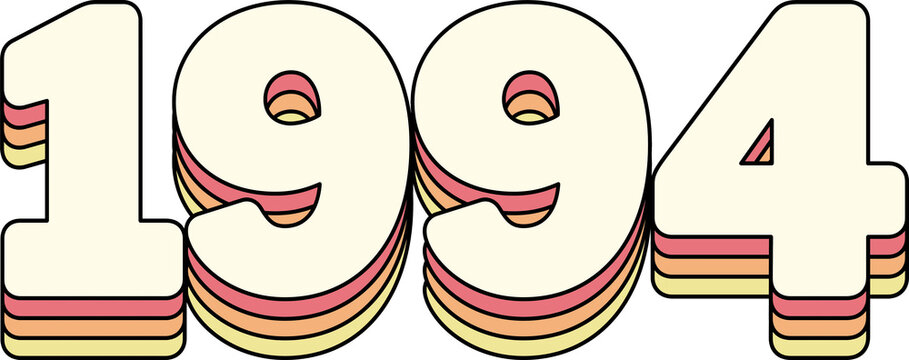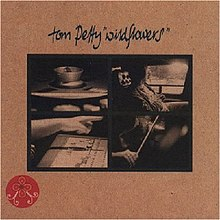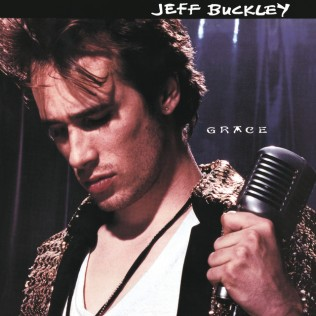a compendium of albums turning 30 in 2024 (part 5)
a collaborative effort celebrating the albums of 1994
Today is the final day of this project. Thanks again to everyone who contributed. These were such a joy to read, and it was fun to put together. Part 1/Part 2/Part 3/Part 4/Weezer by me

Tom Petty - Wildflowers by Colin Shisler

Whenever I see the engagement prompt “What’s the album you’d want on a deserted island?” My answer is “Wildflowers” by Tom Petty (1994). It’s an Americana masterpiece crafted by Tom Petty in the forges of Svartalfheim.
His songwriting always brings to mind the following quote;
“I have made this [letter] longer than usual because I have not had time to make it shorter." - French Mathematician Blaise Pascal.
Like a great poem, every note of a Tom Petty song has an audio and emotional purpose. It grabs an emotion, amplifies it and allows the listener space to soak in that emotion. His subtle genius is in making it sound all too simple. An example of this genius is on display on the live performance of “My Guitar Gently Weeps” for the Rock and Roll Hall of Fame. Prince’s incandescence takes the song to legendary status, but Petty plays the straight man brilliantly; subtly grounding the performance allowing the virtuoso performance by Prince to flourish. I think that ability to tightly structure songs while allowing them room to flourish is why so many covers of Petty’s songs fall flat; Petty has already distilled the song down to maximize its emotional weight.
Wildflowers brilliantly kicks off the album by exploring empathy for others on the title track and then immediately invites the listener to have empathy for themself on You Don’t Know how it Feels. Those first two songs crack open the emotional shell of the listener and the following 13 take them on an odyssey through a large spectrum of their own emotions. Petty’s craftsmanship, and the genius of this album, is in invoking these weighty emotions so fluidly. It whisks us from the difficulty of moving on (Time to Move On) to the excitement of having a crush (You Wreck Me) right back to heartbreak (Only a Broken Heart) and then to some horniness (Honeybee), and then keeps going. I don’t even know what to call the emotion Crawling Back to You is invoking but the song reaches deep within me and pulls it to the surface to baste in. The album is an entire therapy session.
One of the many challenges of being stranded on an island would be the lack of relationships, and that’s probably why I think “Wildflowers” would be the perfect companion; because it explores all the feelings you’d get from a relationship.
https://open.spotify.com/track/7MooGz4ZPE4bNxjFegR6Jx?si=940a3d09118b4cff
Jibblescribbits is an engineer born, raised, and still living in the suburbs of Denver, CO. He is an amateur Photographer whose work can be found on his website and his Flickr page He used to run a Colorado Avalanche blog but now posts all his dumb thoughts about the Avs, music, soccer and posts some photos on Bluesky
Grace - Jeff Buckley by Brett Chandler

Do you remember Jeff Buckley? Know the name? If you don’t, don’t feel bad; he wasn’t around long enough to get the chance to really register on pop consciousness. He would perish oddly and mysteriously before he had the chance to complete his second album. Buckley’s debut Grace displayed confident, eclectic guitar and emotive vocals, and lyrics that even at their most hopeful betrayed vulnerability and cynicism. Buckley’s cover of Leonard Cohen’s Hallelujah is widely credited with “breaking” the then-obscure song, and the album received accolades from Jimmy Page, Bob Dylan, and David Bowie. Even if you don’t love Buckley, an artist you love likely does.
If you do know Buckley, then you know how extraordinary his debut studio album was. Grace had disastrous sales (in North America, at least) and received mixed reviews on its release in August, 1994, but it has gone on to be regarded as one of the best albums of that year. The album has seen steady sales since that lackluster debut, but it took sometime.
I didn’t know about Jeff Buckley in the ‘90s. I only happened to hear the title track come up late one night on an online streaming service in the early aughts and it riveted me. That title track is Southern Gothic writ large in Blues and Rock with an intricate, Bluegrass-y hook. A big, dark-ride of a song that would sound perfect for a cruise through a New Orleans graveyard on Halloween. When it came up in a random playlist my eyes widened, the hair on the back of my neck stood up, and I muttered out loud “What the hell is this?”
Grace is a great example of that rare music business legend, the album that utterly failed on initial release but found an audience and became an improbable classic. It did not crack the Billboard Top 100 Albums chart on release. The title track was the lead single and it barely charted anywhere. The follow up single didn’t much improve and label Columbia gave up after that.
There’s little sign that Buckley himself was as disappointed as his label. He was in demand as a live act and toured relentlessly. His love for live performance was evident, especially in smaller venues (at one point he’d tour Northeast US coffee houses pseudonymously so he could play to small houses). His career had grown organically from such performances and those are the venues where he felt most at home.
As an album, Grace ranges around. It opens with the soaring, sprawling lament Mojo Pin and plunges into the thrill ride of the title track. Last Goodbye was the closest Buckley had to a US hit in his lifetime, peaking at #19 on the Billboard Alternative chart, and it’s a dark, bluesy farewell that brings the Arc Angels to mind. There’s an eclecticism that was perhaps what made the album hard to ken for some. While most tracks were Buckley’s own compositions or collaborations there were improbable covers like Nina Simone single Lilac Wine and Corpus Christi Carol. The album, as a whole, feels like a rangey club set, yet that leaves a really intimate feel. This doesn’t feel like a carefully calculated setlist, it’s what Jeff Buckley wanted to release.
And then there’s Hallelujah. Apparently, Buckley performed it at first without even knowing it was a Leonard Cohen song. He’d first heard John Cale’s cover on the I’m Your Fan Cohen tribute album when a friend had played it for him and he liked the song and included it in his café repertoire. Buckley’s
interpretation is different from both Cale’s cover and Cohen’s original recording on his ’84 album Various Positions. Cale’s version is forceful and anthemic and has a Celtic feel. Cohen’s is an unfortunate victim of gimmicky 80s production but his vocal has a wry humor. He wrote it as a song of Blake’s “experience”, redolent with confidence and a degree of wry humor.
Buckley somehow found Blake’s “innocence”. The production is stripped down and there’s a sense of sadness and vulnerability. Musically, Buckley finds the bluesy heart of the melody with both his guitar and his voice. His read is delicate and mournful where Cale’s was forceful. It’s an earnest interpretation of a song that Cohen intended very differently. Intriguingly, Cohen never commented publicly on Buckley’s cover, and he may not have liked it (Cohen was generally very gracious regarding any artist who would cover his material). Even so, Buckley’s track became a favorite for TV and film Music Coordinators, finding multiple placements in the early/mid 2000s. When VH1 created a video montage in the wake of the 9/11 attacks they used the song to back it, puting it in heavy rotation for months. It became a favorite in Idol competitions all over the world, and every time a singer used it, the sales for Buckley’s single and the album would get a lift.
While Grace didn’t even bring a ripple on North American charts, it garnered fair success internationally. It topped the Australian charts and sold very well in Europe, and Buckley was a popular concert draw. Many other artists expressed their admiration but even with endorsements from the likes of Dylan, McCartney, and Plant at the time Grace was released, audiences didn’t find it at the time.
Buckley was working on his second album (working title: My Sweetheart The Drunk) when he got an odd impulse to swim in the Mississippi River, disappearing in the wake of a tug. His body was found a few days later. His death sparked some renewed sales for Grace.
The word that keeps coming back to me for Grace is “improbable”. That it largely failed on release, yet finally found an audience. That Buckley’s cover of an obscure Leonard Cohen track would finally find unlikely popularity nearly a decade later. That this initial sales failure would become a kind of cult classic. We really got very little chance to know Jeff Buckley. Grace is maybe the best chance we had.
Brett Chandler lives in Whitehorse, Yukon, where he does IT for a living and Community Theatre for fun. He’s also deeply bewildered that he’s somehow survived to 60. He can be found on Twitter at @TheChandlerDude
And that's a wrap on this project. Hope you enjoyed reading it as much as I enjoyed putting it together.
Add a comment: